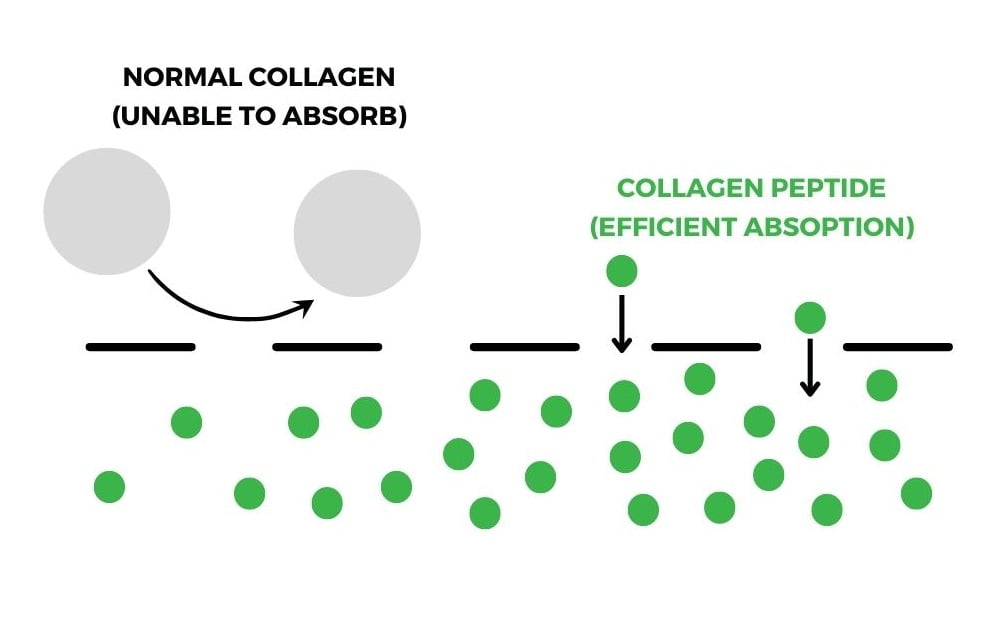Collagen is a crucial protein that is often associated with keeping skin youthful and smooth. But its benefits go beyond just skin care, as it is the most abundant protein in the human body.
Collagen plays a vital role in supporting the overall health of our bones, joints, connective tissues, ligaments, muscles, nails, hair, and gut. In this article, we’ll be discussing the role of collagen in gut health and healing.
The Importance of Gut Health
Gut health is crucial to our overall wellbeing, as it affects our immune system, metabolism, brain health, skin, and more. Several factors, including unhealthy dietary habits, unknown food sensitivities, and high-stress levels, can cause significant damage to the tissues lining the intestines.
A neglected gut can become vulnerable to pathogens, infections, inflammation, and leaky gut syndrome.
Leaky gut syndrome, also known as intestinal permeability, occurs when the tight junctions of the gut wall become weakened, allowing toxins to escape and enter the bloodstream, triggering an immune response and inflammation.
Hydrolysed collagen peptides is a protein that can help you heal your gut. It is easy to digest and is absorbed into the blood stream more efficiently than regular collagen protein. (See diagram below)

Collagen and Gut Health
- Soothes, Strengthens, and Repairs the Gut Lining
Collagen is important for repairing and strengthening the lining of the digestive tract. It contains amino acids, such as glycine and glutamine, which are essential for repair.
Research has shown that collagen peptides can improve gut barrier function and tight junctions. A 2020 study found a correlation between a diet rich in collagen peptides and an altered microbiota with increased short-chain fatty acid (SCFA) production. SCFAs have anti-inflammatory and immunomodulatory benefits.
- Aids Nutrient Absorption and Digestion
Digestive issues like leaky gut can impair nutrient absorption, causing a loss of essential nutrients. Consuming collagen can help support gut wall integrity and mitigate this loss of nutrients.
- Aids Collagen Production
As we age, our bodies naturally produce less collagen. To support collagen synthesis, it’s important to consume enough of the critical amino acids required for collagen production. Eating protein-rich foods, such as animal proteins, eggs, and dairy, will help provide the necessary amino acids.
4. Hydrolysed Collagen Peptides Are More Efficiently Absorbed
Hydrolysed collagen peptides are better absorbed due to their size compared to normal collagen. They contain several essential amino acids, including proline, glycine, and hydroxyproline, that promote gut health. These amino acids serve as building blocks of collagen and support immune function, fix a leaky gut, and promote normal inflammatory processes.
Conclusion
Incorporating an easily digested collagen in the supplement form of hydrolysed collagen peptides, can help support our digestive system and maintain overall gut health. By supporting gut wall integrity, reducing gut inflammation, and aiding in nutrient absorption and collagen synthesis, collagen is an essential component in maintaining our overall health and wellbeing.
Written By
Bryan Meggitt (BMedSc. GCrtMedSc.)
Co-Founder / Blood Scientist | CEN Nutrition
